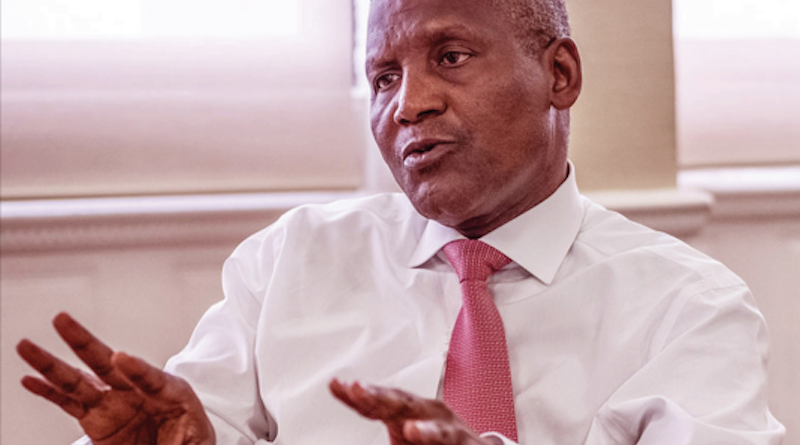Fuel distribution scheme will create jobs, says Dangote refinery
The Dangote Petroleum Refinery has stated that its proposal to provide premium motor spirits (petrol), diesel, and other petroleum products to marketers will reduce inflation while creating jobs.
In a statement issued on Tuesday, the company stated that the distribution of fuel to petrol station operators, manufacturers, telecommunications companies, the aviation sector, and other large-scale users, along with free logistics support, has been hailed by experts as a move with the potential to reduce inflation, create thousands of jobs, and lower the cost of petroleum products across Nigeria.
This comes as several marketers fear they would lose their employment if Dangote launches the initiative.
The refinery stated that its proposal to deploy 4,000 new Compressed Natural Gas (CNG)-powered tankers will not only alleviate the country’s long-standing distribution inefficiencies, but also lessen the influence of intermediaries and contribute to environmental sustainability.
According to the statement, Dr. Abimbola Oyarinu, a university lecturer, noted that if correctly implemented, the regulation may considerably limit middlemen’s clout in the oil and gas distribution chain.
Oyarinu remarked that in the past, intermediaries, such as tanker drivers, have held the sector, and sometimes even the state hostage.
“This project has the potential to end the domination of powerful intermediaries who have hitherto stymied development and held entities like the NNPCL captive. However, Nigerians would judge it based on how it affects fuel prices. If it results in lower petrol at the pump, it will reduce inflation, as fuel costs and exchange rates are significant inflationary drivers in Nigeria’, Oyarinu said.
According to Ibukun Phillips, an energy analyst, the move is “revolutionary” and has the potential to transform Nigeria’s energy environment by boosting accessibility and affordability, particularly in rural areas.
“Logistics currently account for 10-30% of gasoline pricing. Eliminating this expense will automatically result in lower pump pricing. Rural residents frequently pay more for fuel than those in cities, despite earning less. This project has the potential to revitalise derelict filling stations while also ensuring more equal distribution,” she stated.
Phillips also stated that the project would create jobs, with at least 8,000 drivers likely to be hired to launch the business.
Kelvin Emmanuel, an energy specialist and co-founder of Dairy Hills, said Dangote’s decision to cover logistics costs was a crucial step that might allow Nigerians to finally benefit from local refining.
He reportedly “argued that concerns about the refinery becoming a monopoly are misplaced, pointing instead to systemic inefficiencies that have plagued the sector” throughout its history.
He emphasised how “logistical and regulatory failings” had impeded fuel distribution.
According to Emmanuel, the Dangote refinery intervened to close long-standing flaws in Nigeria’s fuel delivery system.
He underlined that fuel supply across the country remains variable, with only Lagos, a few states in the southwest, and Abuja seeing relatively constant and reasonable pump prices.
“Dangote is bearing the weight of shipping, storage, and bridging costs that should have been reduced long ago. This is in response to vested interests’ attempts to thwart fair and efficient distribution,” he stated.
He also stated that the refinery’s reliance on road transport was a “strategic” decision to avoid infrastructure and bureaucratic constraints.
The Petroleum Products Retail Outlet Owners Association of Nigeria rejected Dangote’s direct fuel distribution to marketers on Monday, saying that it would cause filling stations to close and tanker drivers to lose their jobs.




